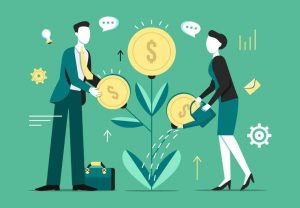Living sustainably involves much more than simply understanding the environmental impact of our daily activities. It’s about recognizing the environmental, social, and governance (ESG) issues that are inherent in virtually everything we do – from what we purchase to where and how we invest.
Social consciousness is becoming increasingly important these days, as individuals seek to make choices that promote sustainability while also protecting their investments. In other words, ESG is now an indispensable part of living a sustainable lifestyle.
But just what does ESG have to do with sustainable living? This post will explore different ways to integrate ESG into your daily life so you can both protect planet Earth and your personal finances! Are you ready to get started? Here we go!
What is a sustainable life?
Living a sustainable life includes a lot of different factors, but the main idea is to reduce our environmental footprint and promote the well-being of society. This could entail reducing our energy consumption, cutting back on water usage, recycling, composting, buying local foods when possible, and avoiding single-use items like plastic bags or bottles.
Living sustainably also requires looking at how we invest our money in order to make sure it aligns with our values. This means supporting companies that adhere to ESG practices.
On a social level, a sustainable life means following practices that benefit the planet and its inhabitants, such as volunteering with a local charity or starting an environmentally conscious business. We can also do our part to reduce poverty by donating to organizations that empower disadvantaged communities, support racial justice initiatives, or promote education.
3 ways to live a more sustainable life
Following a sustainable lifestyle doesn’t have to be complicated or expensive – it simply requires being mindful of how we consume resources and the choices we make when buying things or consuming food.
Here are a few tips that people can follow and help create a brighter future for all!
- Reduce Your Carbon Footprint: One of the best ways to reduce your carbon footprint is by using less energy in your daily life. Start by replacing your lightbulbs with LED bulbs, which use up to 75% less energy and last 25 times longer than traditional incandescent bulbs. Unplugging electronics when they’re not in use is also important, as energy-saving settings don’t always save you as much as you think they do!
- Consume Less & Reuse More: By reducing our consumption of goods, we can help reduce waste and conserve resources. Buying secondhand items is one great way to do this – not only will you be able to save money, but it’s also better for the environment since fewer new items need to be produced! If possible, try shopping with reusable bags instead of plastic ones; this will help reduce plastic waste and contribute to sustainability efforts around the world.
- Eat Sustainable Foods: When shopping for groceries or dining out, focus on purchasing food that has been grown or raised sustainably – i.e., without using synthetic pesticides or growth hormones, inhumane conditions (if animal products), etc. Pay attention to labels and research where your food comes from before making purchases. Additionally, eating more plant-based foods can help reduce your environmental impact – so consider incorporating more fruits and veggies into your diet!
How can ESG enhance sustainable living?
The most important way in which ESG enhances sustainable living is by helping us make more informed decisions. When we’re purchasing products or choosing investments, ESG helps us weigh the potential risks and rewards of each option. It also allows us to prioritize companies that are taking meaningful action on climate change, gender equality, and other social justice issues.
Finally, integrating ESG into our sustainable life can help us support a more equitable and sustainable future. From deciding which company to purchase from to voting in local elections, ESG provides us with the tools and information we need to make decisions that promote sustainability on both small and large scales. Use your dollars and your votes to send a message.
What is an investor?
For most of us, the word investor means someone who puts money into stocks, bonds, and other investments. But when it comes to sustainable living, the term takes on a much broader definition. When it comes to sustainability, an investor also includes stakeholders, like customers, employees, and communities, who are affected by an organization’s decisions and practices. This is measured by the companies you buy from.
How Does ESG Fit into Sustainable Investing?

When it comes to sustainable investing, ESG stands for Environmental, Social, and Governance factors. These three categories encompass a wide range of considerations that impact whether or not a particular investment is a good fit for those looking to support sustainable practices. In order to make sure that the investments you’re making align with your values, it’s important to understand how ESG factors into the equation.
- Environmental Considerations: When it comes to environmental considerations, investors need to be aware of things like emissions levels, water usage, and the potential for environmental damage. All of these factors can significantly impact how sustainable an investment is, so it’s important to take them into account when making decisions about where to put your money.
- Social Considerations: When looking at social considerations, investors should be conscious of things like labor standards, human rights policies, and the potential for positive or negative impacts on local communities. These are all important factors when it comes to ensuring that investments are sustainable and socially responsible.
- Governance Considerations: Finally, governance considerations involve understanding how companies manage their operations, from executive pay to corporate transparency and shareholder rights. All of these factors can have a significant impact on an organization’s long-term sustainability, so it’s important to consider them when looking at potential investments.
By taking all of these ESG factors into account, investors can make informed decisions about where to put their money. By investing in sustainable companies and practices, individuals are not only helping to protect the environment but also protecting their own investments.
What is an ESG investor?
Sustainable living should also include an investment portfolio. Since over 70% of greenhouse gas emissions are created by industry, one of the biggest impacts you can have is through investment. An ESG investor is someone who considers environmental, social, and governance (ESG) issues when deciding where to invest their money. This means that instead of just looking at potential returns and risks associated with a potential investment, an ESG investor would also consider the company’s environmental record, policies towards its employees and suppliers, and how it interacts with local communities.
What types of investments take ESG into account?
When it comes to sustainable living, there is a wide range of investment options that factor in environmental, social, and governance issues. For example, investors can put their money into green bonds and funds, which are specifically designed to finance projects that have a positive environmental impact. Other options include investing in companies that promote renewable energy sources, a circular economy, and efficient water management.
There is also an emerging market of “socially responsible” investments, which focus on investing in companies that promote and practice ethical behavior, such as those that are committed to diversity and equality.
Why is ESG important for investors?
The importance of ESG lies in the fact that it can help reduce risk and maximize returns. By taking into account environmental, social, and governance issues when making investment decisions, investors can better identify companies that are more likely to be successful in the long run. For example, investing in a company with strong environmental policies is less likely to suffer from legal or regulatory issues down the line, which could have an impact on its stock price and returns.
Additionally, ESG investments tend to outperform traditional investments over time due to a lower risk profile and higher returns. This means that investors who incorporate ESG factors into their investment strategies are more likely to see better returns over the long term.
What do ESG Ratings Mean?
An ESG rating provides an objective measure of a company’s performance in terms of environmental, social, and governance factors. Ratings are usually provided by independent organizations that evaluate companies on these issues.
For example, the Dow Jones Sustainability Indices (DJSI) assesses and ranks leading companies based on their overall ESG performance. The higher the rating, the better a company’s ESG performance is likely to be.
ESG ratings can also help investors identify companies that are more likely to succeed in the long run and make better investment decisions.
In conclusion on ESG and sustainable living
Living sustainably involves much more than just understanding the environmental impacts of our actions. It also means being aware of the social, environmental, and governance (ESG) considerations associated with virtually everything we do, from what we buy to where and how we invest.
By taking these ESG factors into account, investors can reduce their risks and maximize returns, while also promoting a more sustainable economic system. ESG ratings are one way to identify companies that are likely to do well in the long run and make better investment decisions, but investors should still conduct due diligence before investing in any company or fund.
Ultimately, investing with an ESG mindset is part of living a sustainable lifestyle, and it is important for all of us to take responsibility for our actions.
Contributed by Dean Emerick. Dean is a Digital Strategist on sustainability with ESG The Report, an online resource of like-minded professionals focusing on ESG principles and socially responsible investment for a more sustainable future.






Add comment